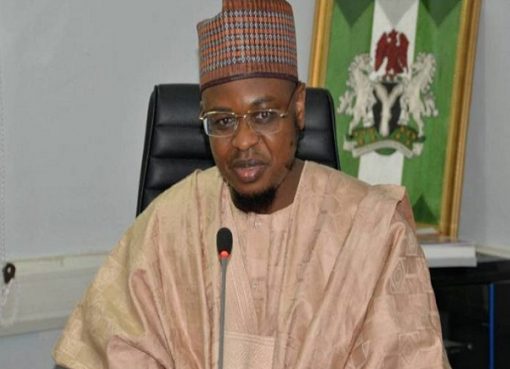TV presenter Dr Shini Somara talks to Ayo Sokale, a chartered civil engineer working in flood and coastal risk management at the Environment Agency.
Ayo Sokale: I lived part of my childhood in a different country where I saw infrastructure making things better. To me engineering was almost ‘godlike’ in its power to transform people’s lives. I want to be a person who can help people in such an impactful way.
SS: Were you aware of being in a minority as a Woman of Colour in Engineering?
AS: When I was younger, I had never thought about it, because I grew up in a country where I was the ethnic majority. But then I moved to the UK, where I was the first black girl in my school. That was when I started becoming aware of race. But at that point, I was already invested in engineering and was determined to be an engineer. I believe engineering is for people who are interested in solving problems, and this is not exclusionary.
SS: How have you dealt with being different?
AS: I used to accept people’s prejudice against me. Yet in endeavouring to make everyone else feel comfortable, I diminished my own self. I became something that wasn’t me and that meant I couldn’t bring my authentic value to the table. It’s an ongoing journey; we constantly face challenges, and you learn how to deal with them and speak up. This is part of self-development and of being an engineer as well. It’s an iterative process.
I wish someone had asked me when I was younger, what am I good at? What do I enjoy and what problem in the world would I like to solve? I would have looked at how these three things tessellate. I think it’s important to find out what one’s true nature is.
We hear a lot about diverse women who feel like their voices aren’t being heard. But issues such as impostor syndrome diminish each time you take power: each time you address it head on, each time you use your voice and each time you stand up for yourself. In doing so, you make the world better for all the other women and all the other diverse people that come after you.
I’m autistic and this is me. This is an element of my diversity. I have faced a lot of bullying because of it, but it has also helped me develop a lot of resilience.
Nobody would ever choose to be bullied, but I chose to push through them. I didn’t ever want these experiences to make me bitter, cruel, cold, or inhuman. Instead, it made me strong and empathetic towards others. It encouraged me to ask myself early on, who do I want to become and how can I help others be their truest selves, so that we can all contribute our zenith potential and make the world a better place.
AS: One of my mentors who made the biggest difference in shifting my perspective and helping me to accept my diversity was the incoming president of the ICE, Ed McCain. I’ve been lucky enough to have people such as him nudge me along my journey.
Following work experience, where colleagues laughed at the way I dressed, I changed how I showed up in the world, but then my mentor Clare taught me we can be who we are. Clare dresses brilliantly herself. She’s a director who wears bright pink and looks so radiant. Through her, I gave myself permission to show up in my natural style.
It’s also important to have mentors, people who are very different from you, too. I mentor other people and they teach me a lot.
SS: What’s your take on failure?
AS: I’m always one of the first to have a go at things, because if you don’t, you’ll miss the opportunity to grow, learn and become something new. That means that you must be ready to fail and be OK with it. That’s how you live big, and you do big things.
I think we’re so attached to our success and utility, that when we fail, it feels like a personal attack. It can destroy our sense of self, but it’s all about growing. You’ve got to do things and be scared. Failure is an indication that you tried.
SS: What are your perspectives on equality, diversity and inclusion (EDI)?
AS: We need diverse people who represent communities. There is so much value in different minds, different skills, different lived experiences.
Difference plugs gaps and gives us something whole. In engineering, we’ve got to make decisions on diversity and inclusion that help us get to where we want to go.
Source: E&T










